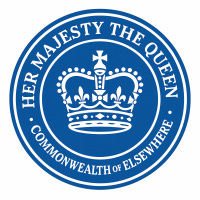The First Coronation
No one could say when the change in the library began, only that it crept in like a scent—warm paper, polished wood, and a faint, improbable air of ceremony.
Patrons started lowering their voices not because of signs that said ‘Silence, please’ but because the space itself seemed to expect it. The air felt composed, as though everything in the building had taken a deep breath and agreed to behave.
At the center of this quiet spell was Agnes Whitcombe, who now moved through the aisles with an air of gentle sovereignty. She never hurried. Her gestures had the rhythm of ritual: the smoothing of a page, the turning of a key, the offering of a smile. She began to wear a small silver brooch shaped like an open book, pinned where a crown might have rested.
The staff noticed.
“She’s different,” whispered Miss Toller, the archivist. “Softer, but somehow taller.”
“Maybe she’s seeing someone,” Mr. Dallow suggested.
“She’s seeing something,” Miss Toller replied.
The rumor of her new “majesty” spread until one morning a group of schoolchildren, arriving for a tour, bowed to her at the entrance. Their teacher, embarrassed, explained that one of them had told the others “the librarian’s a queen now.”
Agnes smiled, unoffended. “If they wish to believe that,” she said, “we must try to deserve it.”
She led them through the reading rooms as though guiding visiting dignitaries. When a child asked if the globe in the corner showed where her kingdom was, she tapped the Atlantic Ocean and said, “Somewhere between the lines of a story.”
The children gasped as if she had revealed a secret country.
After they left, Miss Toller shook her head. “You’re encouraging them.”
“I’m encouraging imagination,” Agnes said. “It’s an endangered species.”
That afternoon, she found a small envelope on her desk. Inside was a folded paper crown, carefully cut from an old catalogue, with the words For Her Majesty, the Queen of Books written in blue crayon. She placed it on her head and laughed so softly that even the dust motes seemed to listen.
But the moment she caught her reflection in the glass door—crown tilted, eyes bright—something inside her stilled. For the first time, she didn’t feel foolish. She felt appointed.
A week later, the staff planned a small surprise. They were fond of her eccentric dignity, and in secret, they decided to honor it. On the day of the library’s founding anniversary, they decorated the main hall with garlands of paper and hung a sign above the desk:
“Long Live the Queen of the Library!”
They expected her to laugh and wave it away. Instead, she stepped forward, touched the banner, and bowed deeply to them all.
“Your loyalty humbles me,” she said with perfect gravity. “Let this be our coronation—not of a person, but of purpose. Henceforth, this library shall be the Palace of Knowledge, and we its faithful citizens.”
There was a pause, then a burst of applause. Even Mr. Dallow cheered.
Someone brought tea. Someone else placed a daisy chain upon her head. A patron from the genealogy section played “Greensleeves” on his phone. It was absurd and wonderful.
At the end, Agnes raised her cup.
“To the Realm of Reading,” she declared.
“To the Queen!” they answered.
It was meant as a jest, yet when she looked around the room, she saw faces brightened, shoulders eased, and the tired dignity of ordinary people restored by the sheer play of it. Something larger than make-believe had entered the air.
That evening, as she locked the doors, she wrote in her journal:
Today, the crown became collective. A queen is nothing without her realm.
Then she signed it, for the first time without irony,
Agnes Regina, Sovereign of Elsewhere.
“A Reflection of Your Majesty”
At the opening of the Exhibition of Elsewhere, Agnes stood before a modest crowd in the library courtyard. Banners of hand-painted clouds fluttered from the balconies. Children wore paper crowns; the mayor wore a nervous smile.
When her turn came to speak, a young reporter, half-joking, addressed her with a curtsey:
“Your Majesty, would you grace us with a few words?”
The audience chuckled. Agnes, serene and unhurried, inclined her head.
“My dear,” she said, “I am only a reflection of your majesty.”
The laughter stilled. Her tone was not ironic but utterly sincere, as though she had named something everyone secretly longed to believe.
“You see,” she continued, “in Elsewhere, every citizen is royal. The crown is imagination, and the throne is the quiet within you when you remember what you love. I merely wear the regalia so that you might recognize your own reflection.”
Someone in the back began to clap. Then everyone did. The mayor looked momentarily moved, as though he too had glimpsed his reflection in her words.
Later, when the line of visitors came to greet her, each bowed—not in mockery, but with a strange tenderness, as if they had been momentarily knighted by their own forgotten nobility.





If only.....eh?